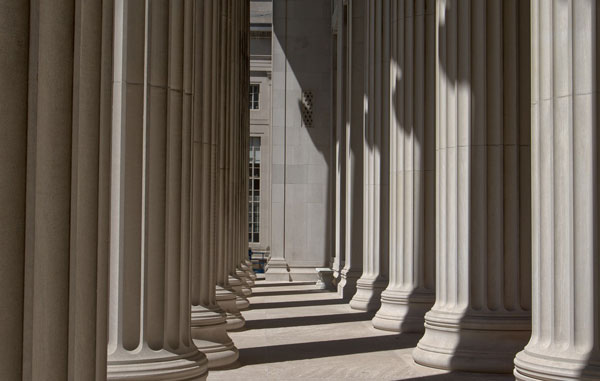MIT Freshman class sees drop in diversity following Affirmative Action ban

[Columns of buildings. Credit to Pixabay]
After initiating the recent ban on affirmative action, Massachusetts Institute of Technology (MIT)’s incoming freshmen class shows a notable decrease in diversity, affecting Black and Latino students while benefiting others, namely Asian-American students.
According to USA Today, this year’s freshman class at MIT comprises just over 16% of Black, Hispanic, Native American or Pacific Islander students, compared to 31% in previous years prior to the ban.
In a recent speech, The president of MIT, Sally Kornbluth acknowledged the shift.
“The class is, as always, outstanding across multiple dimensions,” she said, adding, “But what it does not bring, as a consequence of last year’s Supreme Court decision, is the same degree of broad racial and ethnic diversity that the MIT community has worked together to achieve over the past several decades.”
The difference in numbers reflect the impact of the 2023 Supreme Court decision that banned race-based affirmative action in U.S. universities, following the case Students for Fair Admissions vs. Harvard College.
The lawsuit, which also involved the University of North Carolina, accused the schools of discriminating against Asian-American applicants.
Affirmative action, as explained by Britannica, encompasses policies designed to improve educational and professional opportunities for historically underrepresented and minority groups.
These policies extend to areas such as higher education, employment, housing, and financing.
The New York Times claimed that the sudden surge of Asian-American acceptance into MIT is “consistent with the evidence in the two lawsuits,” and how they were being penalized in the past.
A professor at Yale Law School, Justin Driver, expressed concern about the broader consequences of the Supreme Court ruling, stating that “paucity of Black students at the nation’s foremost colleges will ultimately have effects on the nation itself,” potentially influencing leadership in government, academia, and business.
While the affirmative action ban poses challenges for minority groups, it appears to offer advantages for Asian-American students, who may now benefit from a race-neutral admissions process.
A Pew Research Center survey conducted shortly after the ruling found that 76% of Asian- American adults believe race should not be a factor in college application processes.
When filling out a survey, 53% of Asian-Americans felt that affirmative action made the overall admissions processes less fair and 36% believed that students admitted under these policies were less qualified.
Although MIT is the first major university to release its data following the affirmative action ban, similar trends are likely to emerge at other institutions across the country as the impact of the ruling continues.

- Chaewon Lee / Grade 9
- Seoul Foreign School

![THE HERALD STUDENT REPORTERS [US]](/assets/images/logo_student_us.png)
![THE HERALD STUDENT REPORTERS [Canada]](/assets/images/logo_student_ca.png)
